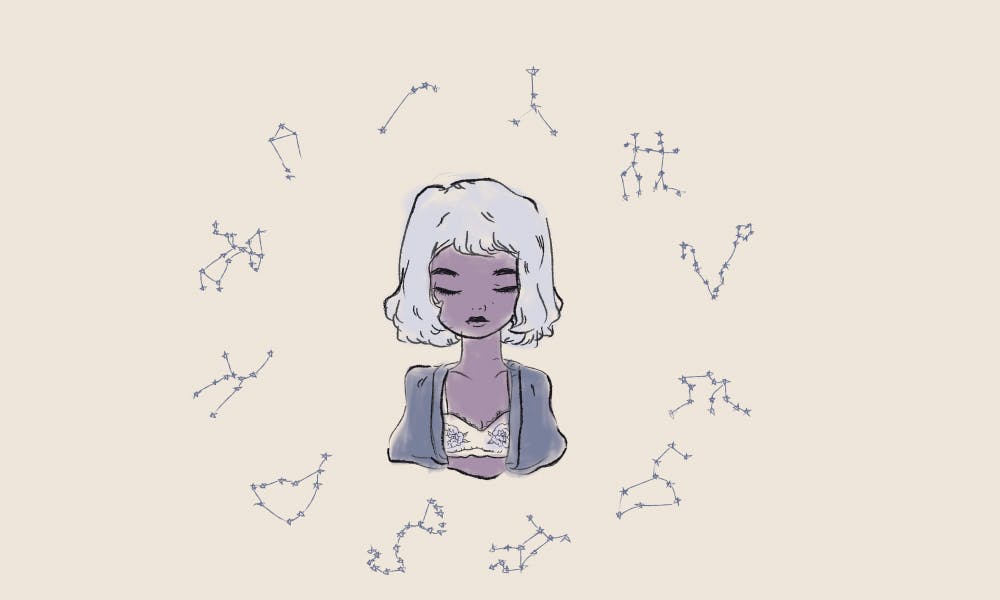I’m a Taurus. By definition, that means I’m bold, extroverted, strong, and stubborn—the last being ironically true. In high school, I checked my horoscope excessively. I had a morning routine: wake up, turn on my iPhone, go on Snapchat’s explore page, and check my horoscope on Cosmopolitan. This obsession escalated from just reading Cosmo to the point where I now have not one, but three horoscope apps on my phone. With apps like Co–star rising in popularity, there's an important question here: Why are we all so obsessed with our horoscopes?
To start—they're reassuring. Everyone can relate to fearing the unknown. It’s normal, natural, and common to be scared of what is coming ahead. That’s exactly why when our horoscopes say something that feels relatable and possible, it feels amazing. People feel validated in what they've been thinking all along, but were too scared to claim for themselves. It's convenient to rely on something tangible—a horoscope—to validate what we already know.
Horoscopes hit close to home for me because my aunt is an astrologer, so I grew up with a family member who believed in the stars and the moon as important predictors of our lives. She always reminded me to trust myself, and know that what my horoscope said about me was nothing new—rather, it was saying things I had already known deep down but was too afraid to explicitly accept.
Maybe people feel the need to check their horoscopes daily because they can't just let the future happen. We want to prepare ourselves, as if some app we download for $0.99 can accurately foresee the events of the day. People want control over what is going to happen to them—which a horoscope neatly lays out.
Joseph Kable, a Psychology professor at Penn studying psychological and neural mechanisms of choice behavior, says “People spend a lot of time, mentally, outside of the here and now, imagining the future or remembering the past.” Thus, it can be fun to dream about the type of day, week, or year, you may want to have. Kable claims that “horoscopes provide another impetus to do this.”
Kable says that “most horoscopes are what psychologists call ‘Barnum statements’— statements that are vague and generalizable enough that most people (including people who don’t share your sign) endorse them as true statements about themselves.” Because Barnum statements are relatable in their essence, Kable believes, “it’s easy to think that the predictions are more personal, unique, and accurate than they really are.”
Sure, there are people who reject the idea of a horoscope completely. But, it’s a comforting feeling–believing that the stars are working in our favor. We’re all on some sort of path whether we choose to acknowledge it or not. A horoscope can't necessarily predict that path, but a person’s zodiac sign is unique for a reason. Maybe what it really does best is serve as a reminder that we're all different people with different futures, but we're all just striving to know ourselves better.

